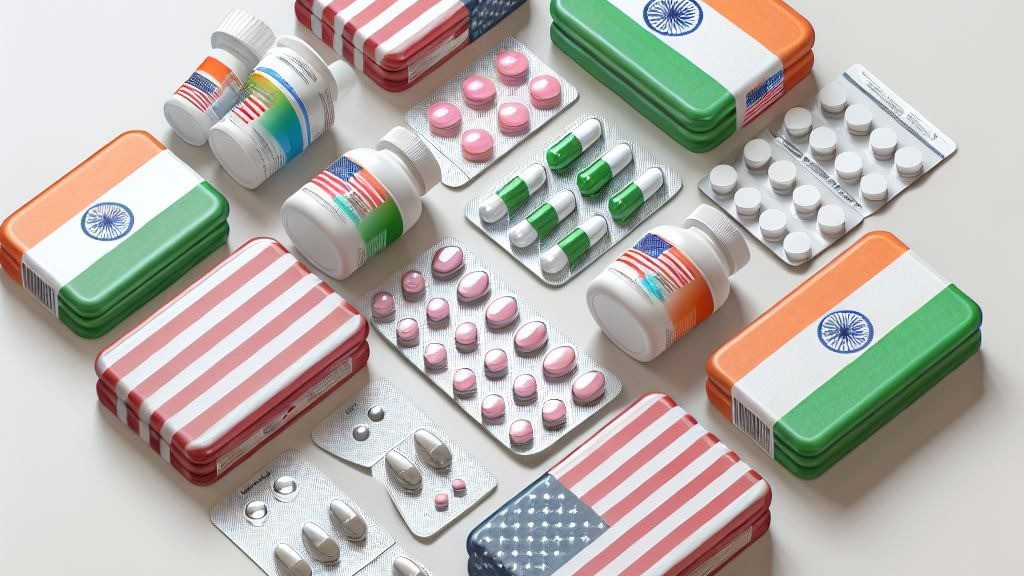“The potential imposition of a 25% US tariff on Indian pharmaceutical imports has raised concerns within the industry.”
The latest announcement by US President Donald Trump has sparked uncertainty in the Indian pharmaceutical industry, as discussions about raising tariffs on drug imports gain traction. Given that the US accounts for approximately 38% of India’s pharmaceutical exports, such a move could have significant ramifications for both large and small players in the sector.
Instant Impact on Indian Pharma Companies Sun Pharmaceutical Industries, Dr. Reddy’s Laboratories, Aurobindo Pharma, and Cipla, are already feeling the effects, with stock prices declining by up to 2% to a seven-month low following the tariff announcement. These companies rely heavily on the US sales market, and increasing tariffs are expected to reduce profit margins and reduce competitiveness in the US market.
“Setting up manufacturing facilities in the US to circumvent tariffs is an option, but it involves significant time and financial investment.”
Challenges for Small and Medium Enterprises (SMEs) Major Indian pharmaceutical companies, including While large pharmaceutical firms have the resources to explore alternative strategies, small and medium-sized enterprises (SMEs) face more intimidating challenges. Increased tariffs could lead to an oversupply of products in the domestic market due to low profitability in exports to the US. This dumping possibility could lead to increased competition and price wars in India, and profit margins for small and medium-sized businesses are looming. Without financial resilience to withstand longer periods of less profitability.
“Some small businesses may be forced to shut down operations due to financial strain.”
Pressure to Reevaluate the Uniform Code for Pharmaceutical Marketing Practices (UCPMP) In response to these challenges, there is a growing discourse within the industry about the Uniform Code for Pharmaceutical Marketing Practices (UCPMP) 2024. The UCPMP, implemented to regulate ethical marketing practices, imposes stringent guidelines on promotional activities and interactions with healthcare professionals. While the code is intended to improve transparency and ethical behavior, compliance requires substantial resources, which are particularly stressful for small businesses. In light of the financial strains exacerbated by the US tariffs, industry stakeholders may advocate for a relaxation or temporary suspension of certain UCPMP provisions to alleviate operational pressures.
Potential Government Intervention Due to the increasing impact of US tariffs and strict domestic regulations, pharmaceutical companies may apply for government intervention. Advocacy groups might urge the government to negotiate with US counterparts to reconsider the tariff structure or to provide domestic relief measures, such as tax incentives or subsidies, to support the industry during this turbulent period. Additionally, there may be calls for a review of the UCPMP to balance ethical standards with the economic realities faced by the industry.
Conclusion
US tariffs on pharmaceutical imports may impose a significant challenge to India’s sector. Large corporations must adjust strategies to stay competitive in the US, while SMEs may face increased competition and regulatory burdens. A collaborative approach between industry and government is crucial for ensuring the sustainability and growth of India’s pharmaceutical industry.
The Oncodoc team is a group of passionate healthcare and marketing professionals dedicated to delivering accurate, engaging, and impactful content. With expertise across medical research, digital strategy, and clinical communication, the team focuses on empowering healthcare professionals and patients alike. Through evidence-based insights and innovative storytelling, Hidoc aims to bridge the gap between medicine and digital engagement, promoting wellness and informed decision-making.



